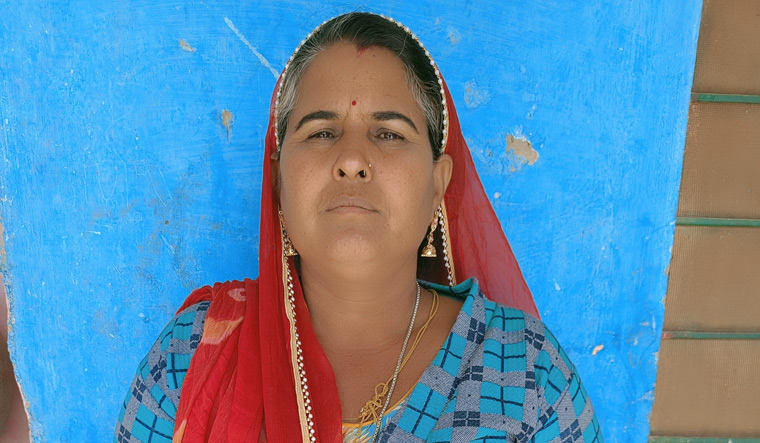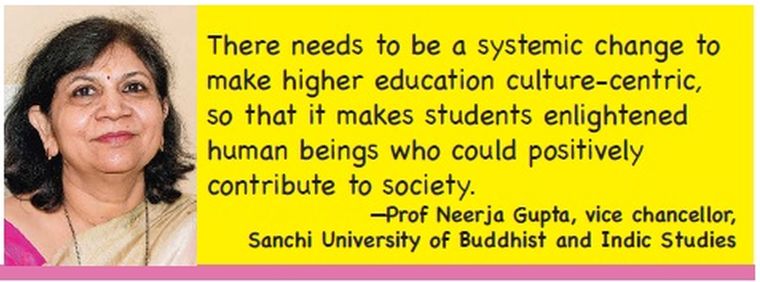When the results of class 10 board exams of Rajasthan State Open School (RSOS) were announced in December 2021, Ganga Devi Gujar’s name did not figure in the list of successful candidates. But the 44-year-old has surely passed with flying colours as far as her efforts to promote girls’education are concerned.
Thanks to Gujar, three child brides, who had dropped out of school after class eight, took the board exams with her. This was the first time in Padampura village—dominated by Gujars (a cattle-rearing community)—in Ajmer district that girl dropouts had resumed studies. Though none of the three passed the exam, their determination to do so has increased manifold.
Also read
- Midnight's Daughters: Women who fought for the idea of India and her freedom
- Tawaifs: unsung warriors of India's independence
- Anuja Chauhan on the dawn of Indian women
- Chanel’s global CEO Leena Nair wears humility and empathy on her sleeve
- The first Indian woman to describe 50 species of frogs
- Falguni Nayar's makeover magic
But the toughest question that Ganga Devi faced was how to get the girls to write the exam. The girls were married off young, but continue to live with their parents as they wait for their gauna (when girls are sent to their husband’s house once they attain puberty). Ganga Devi, an accredited social health activist, understood why parents were reluctant to let the girls study further.
The families come from a deeply patriarchal and rural setup. They did not see the need for married girls to study further. They found a ready though practical excuse—they could not let the girls travel alone to the proposed exam centre, which was 15km from the village. The exams were scheduled in October 2021. It was harvest season, and the men refused to take the girls to the centre. So, ‘Ganga madam’, as she is known in the village, decided to.
A child bride herself who quit school after class 9 in 1994, Ganga Devi appeared for the board exams. “Despite being busy with the Covid-19 vaccination programme and my housework, I told the families that I would appear for the exam, chaperone the girls and see to their safety,” she told THE WEEK.
But Ganga Devi first had to figure out a way to ensure that she and the girls reached the exam centre safely and on time. “We have no public transport from the village. So we would start two hours before the exam time,” recalled the mother of five who adopted a daughter. “I would send the girls one by one with the villagers who deliver milk on motorcycles to Makadwali, about 4km from our village. I would ask the girls to wait at a particular spot and then we would take a tempo to the exam centre, another 10km away.” On their way back, they would walk the 4km from Makadwali to their village.
The unusual quartet will appear for class 10 exams again this year. “We could not study well [earlier] as it was harvest season and we had to work on the farm and at home, too,”said Satya Gujar (name changed), who is keen on clearing the exam because she wants to “become like Ganga madam”. Her brother Mahendra supports girls’education—a rare act for a man of Padampura. “The unexpected help from Ganga madam was the main reason Satya was able to try and fulfill her dream,”he said.
Chhotu Singh Rawat, a member of Mahila Jan Adhikar Samiti that is running a Child Rights and You (CRY)-supported adolescent empowerment programme in Ajmer district, said that they had tried to persuade 15 teenage girls to take the exams, but only three agreed, that, too, because of Ganga Devi.
But she is up for the task. “I want to convince more dropout girls and their families so that maximum number could appear for the board exams next time,” she said. “I am sure I will be able to do it.”



